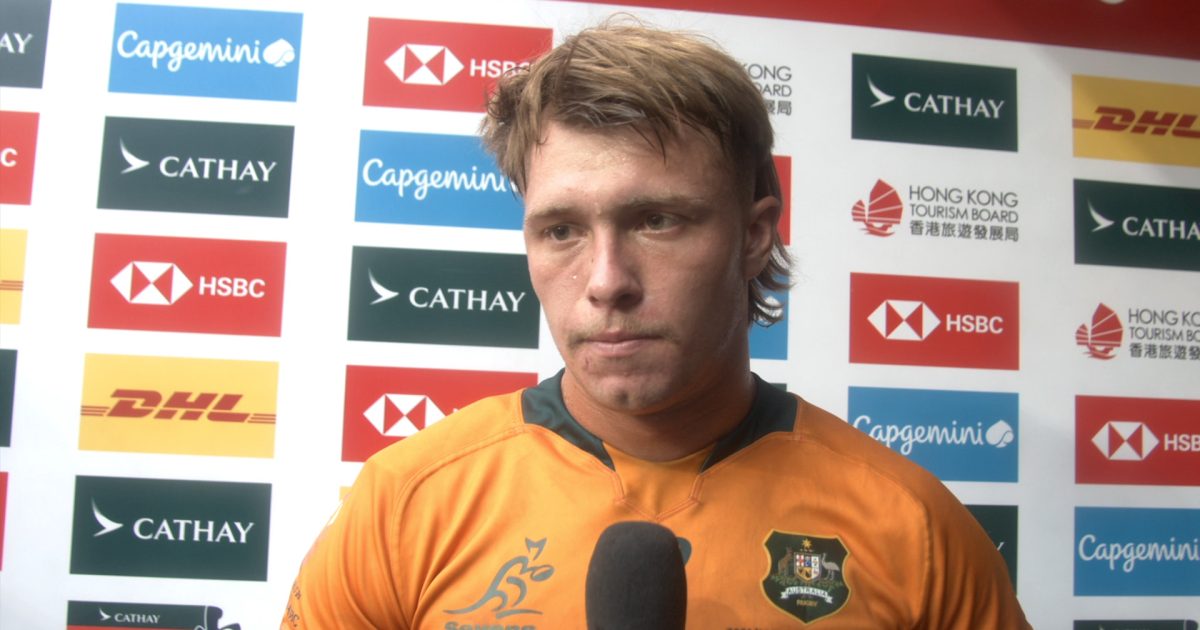'Pretty disappointed': Star left 'gutted' as Aus fail to qualify for HK quarters

Australia have failed to defend their Hong Kong Sevens crown after falling at the final hurdle of pool play against the United States.
Reigning World Series champions Australia, who won in Hong Kong last November, started their title defence with a convincing 21-point win over Japan on Friday.
While the men in gold were able to survive a scare against Spain on day two, they still needed to avoid a loss against the USA to quality for the men’s quarter-finals.
Dietrich Roache opened the scoring in the first minute, but that’s as good as it got for the Australians.
The United States struck back through David Still towards the end of the half, before former World Rugby Sevens Player of the Year Perry Baker began to ran riot at Hong Kong Stadium.
The electrifying Baker crossed for a quick fire double in the second half, before Malacchi Esdale helped the Eagles complete their 24-point haul.
Australia’s quest for a second-consecutive title in Hong Kong was brought to an early end, while the United States breathed new life into their World Series campaign.
Walking down the tunnel at the north-west end, rising star Darby Lancaster was clearly cut by the loss – but determined to bounce back in the future.
“It’s absolutely gut-wrenching. We really wanted to beat them and put ourselves into a good shape going into the rest of the tournament,” Lancaster told RugbyPass.
“Both individually and as a team, I think we can all say that we’re pretty disappointed with that effort.
“I don’t know what to say, I’m pretty gutted.
“At the end of the day I knew I put my all out there, and today that wasn’t good enough.
“We need to be better and I know that every guy next to me put in just as hard an effort.”
Going into the second Hong Kong leg of this season’s circuit, Australia sat in fifth place on the men’s World Series standings.
With the top four teams automatically qualifying for the Olympics – as the Australian women’s team have done – this weekend’s tournament was always going to be crucial.
“Sevens is a cruel game, it’s so easy and it’s won in such small moments and I guess that’s what makes it exciting, and that’s what makes it so disappointing as well,” he added.
“Top four is everything. If we want to be putting points and putting ourselves in contention for Olympic qualification, we need to be making top four every tournament.”
Australia will return to the legendary sevens venue on day three for their ninth place playoff against tournament hosts Hong Kong China.











































































